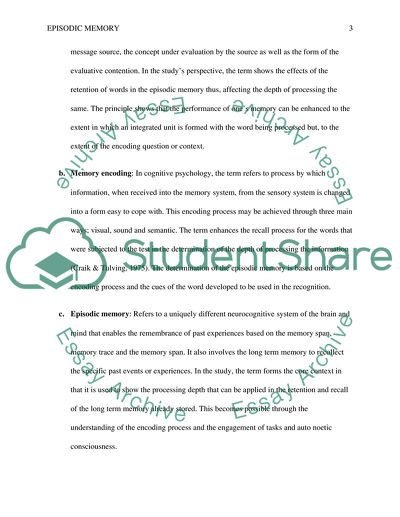Cite this document
(“Depth of Processing and the Retention of Words in Episodic Memory Article”, n.d.)
Retrieved from https://studentshare.org/psychology/1634055-depth-of-processing-and-the-retention-of-words-in-episodic-memory
Retrieved from https://studentshare.org/psychology/1634055-depth-of-processing-and-the-retention-of-words-in-episodic-memory
(Depth of Processing and the Retention of Words in Episodic Memory Article)
https://studentshare.org/psychology/1634055-depth-of-processing-and-the-retention-of-words-in-episodic-memory.
https://studentshare.org/psychology/1634055-depth-of-processing-and-the-retention-of-words-in-episodic-memory.
“Depth of Processing and the Retention of Words in Episodic Memory Article”, n.d. https://studentshare.org/psychology/1634055-depth-of-processing-and-the-retention-of-words-in-episodic-memory.


